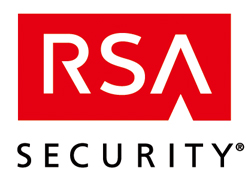RSA Security will replace virtually every one of the 40 million SecurID tokens currently in use as a result of the hacking attack the company disclosed back in March. The EMC subsidiary issued a letter to customers acknowledging that SecurID failed to protect defense contractor Lockheed Martin, which last month reported a hack attempt.
SecurID tokens are used in two-factor authentication systems. Each user account is linked to a token, and each token generates a pseudo-random number that changes periodically, typically every 30 or 60 seconds. To log in, the user enters a username, password, and the number shown on their token. The authentication server knows what number a particular token should be showing, and so uses this number to prove that the user is in possession of their token.
The exact sequence of numbers that a token generates is determined by a secret RSA-developed algorithm, and a seed value used to initialize the token. Each token has a different seed, and it's this seed that is linked to each user account. If the algorithm and seed are disclosed, the token itself becomes worthless; the numbers can be calculated in just the same way that the authentication server calculates them.
This admission puts paid to RSA's initial claims that the hack would not allow any "direct attack" on SecurID tokens; wholesale replacement of the tokens can only mean that the tokens currently in the wild do not offer the security that they are supposed to. Sources close to RSA tell Ars that the March breach did indeed result in seeds being compromised. The algorithm is already public knowledge.
As a result, SecurID offered no defense against the hackers that broke into RSA in March. For those hackers, SecurID was rendered equivalent to basic password authentication, with all the vulnerability to keyloggers and password reuse that entails.
RSA Security Chairman Art Coviello said that the reason RSA had not disclosed the full extent of the vulnerability because doing so would have revealed to the hackers how to perform further attacks. RSA's customers might question this reasoning; the Lockheed Martin incident suggests that the RSA hackers knew what to do anyway—failing to properly disclose the true nature of the attack served only to mislead RSA's customers about the risks they faced.
RSA is working with other customers believed to have been attacked as a result of the SecurID compromise, though it has not named any. Defense contractors Northrop Grumman and L-3 Communications are both rumored to have faced similar attacks, with claims that Northrop suspended all remote access to its network last week.






0 comments:
Post a Comment